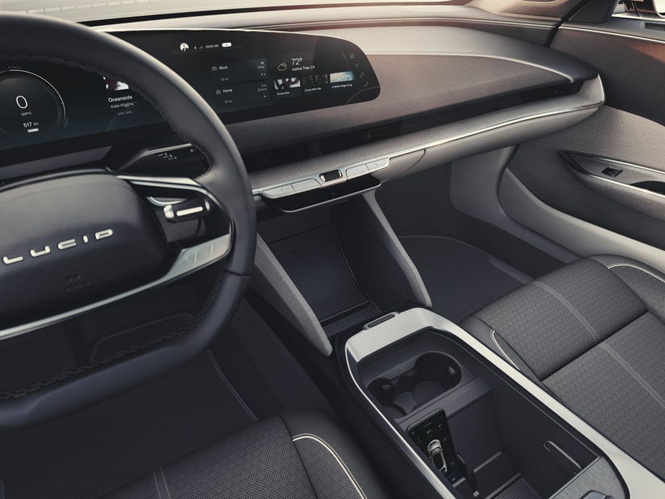-
By ecocharge
- 0 Comments
Lucid Motors intends to open its factory inside Saudi Arabia today, as part of the kingdom’s efforts to become one of the top 5 electric car manufacturing and exporting countries in the world. Recent attention has been focused on the kingdom’s endeavors to diversify its economy away from oil and its commitment to the global plan to reduce carbon emissions. This has driven Saudi Arabia to localize several non-oil industries, with the electric car sector at the forefront. According to a report by the “Financial Times,” Saudi Arabia aims to produce 500,000 electric cars annually by 2030, with the goal of becoming one of the top five producers and exporters of such vehicles globally. The key component of Saudi Arabia’s plan is its electric car factory “SIR,” which aims to launch its cars in 2025 in collaboration with the Taiwanese technology group “Foxconn.”
“SIR” aims to produce 170,000 cars annually in the Kingdom, while “Lucid Motors,” based in the United States and in which the Public Investment Fund holds a stake exceeding 60%, plans to produce 150,000 cars annually in the Kingdom within 3 years. The electric car company “SIR” had announced in November last year that it would develop an industrial site near the city of Jeddah, stating that it had acquired a land area of one million square meters within the King Abdullah Economic City in a deal valued at around 96 million dollars. It is expected that “SIR” will contribute 30 billion Saudi Riyals to the kingdom’s Gross Domestic Product by 2034 and attract direct foreign investments of up to 562 million Saudi Riyals. Additionally, it is expected to create 30,000 direct and indirect job opportunities.
On the other hand, “Nomura” for asset management in the Middle East anticipates that the electric car industry will significantly reduce Saudi Arabia’s import bill, noting that transportation currently accounts for about 15% of Saudi Arabia’s imports bill. Furthermore, the electric initiative aligns with Saudi Arabia’s goal to have 30% of cars running on electricity by 2030.


On another note, Saudi Arabia is actively pursuing the localization and securing of minerals required for the electric car industry, including lithium, cobalt, nickel, and copper. This is particularly important with the presence of the “Lucid” electric car factory, as the kingdom aims to invest $15 billion in global mining stakes.
Furthermore, Saudi Arabia has engaged with the Congolese government in June regarding investment in cobalt mines in the Congo, which supplies 70% of the world’s cobalt.

